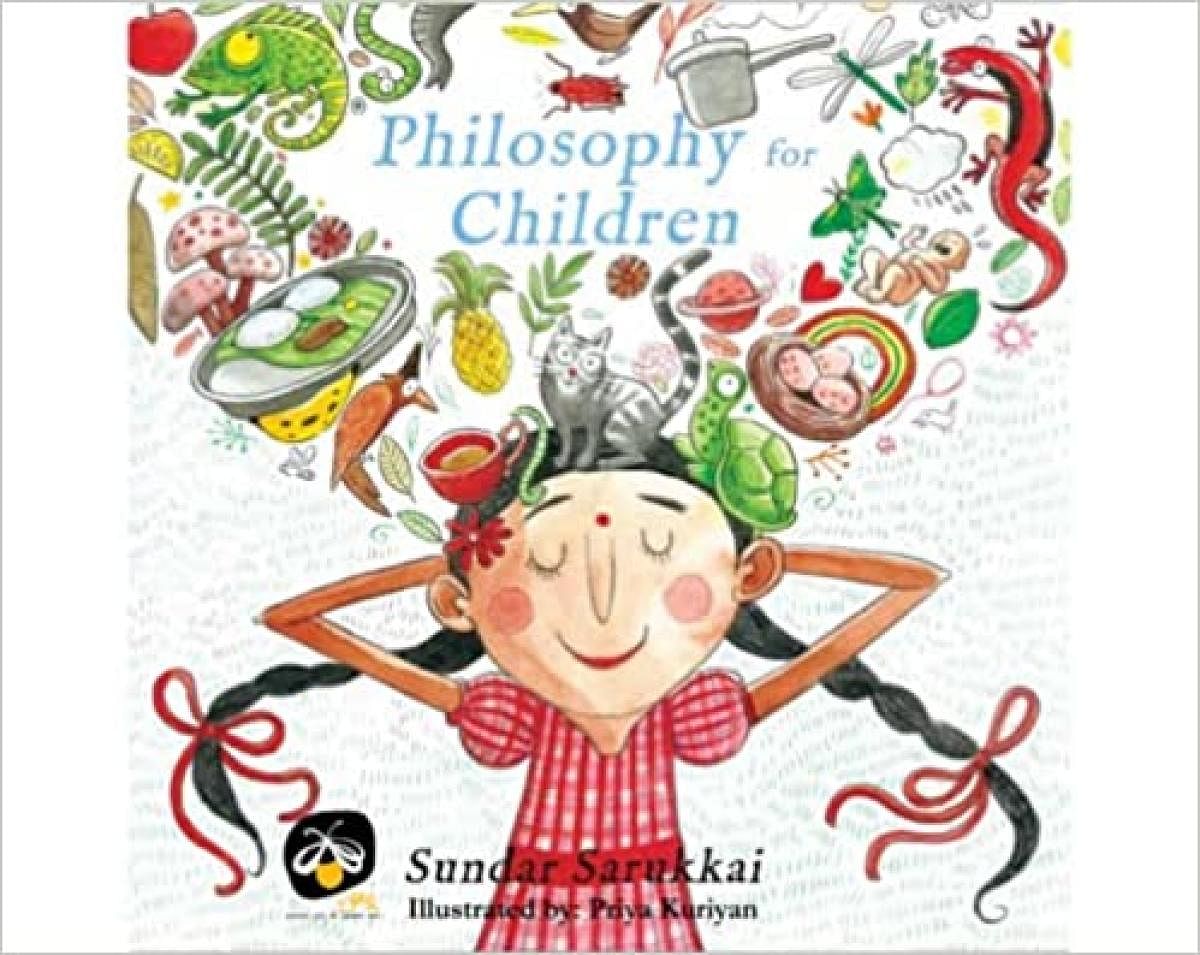
When she was younger, my daughter would suddenly look up at the expanse of the night sky, or start wondering how life began, and say, dramatically, “WHY?” It was not a question, really, or rather, there were so many questions that she didn’t know where to start. Then I’d try and have a discussion, and attempt to explore answers with her. Some worried that she was too young for such deep discussions.
But I think children are naturally philosophical. They wonder about the universe and space, life and death, and much more. And if they ask questions, we ought to attempt to answer them. It makes me happy that children’s creators don’t shy away from discussing these deeper questions.
Philosophy for Children is a new book by Sundar Sarukkai, a professor who has taught philosophy for decades. The book has wonderful-as-always illustrations by Priya Kuriyan. Written in a light, affectionate and conversational style, Sarukkai discusses philosophy in a very relatable way, without talking down to children, or dumbing down concepts. Even if a child isn’t thinking of these bigger concepts yet, these questions and exercises will jog and expand their minds. And for those kids who are already asking these questions, this book will provide answers, or at least a starting point and a guiding path for further discussions. I wish I had this book when my daughter was younger.
There’s this adorable series called Big Ideas for Little Philosophers — simple board books, each one introducing, in a nutshell, the ideas of philosophers like Socrates, Descartes, Simone de Beauvoir, and many more. What a lovely intro to different philosophical ideas!
The Boy, The Mole, The Fox and the Horse by Charlie Mackay is an extremely popular book filled with simple sentences and relatable characters, accompanied by flowing black-and-white sketches. Each page is like a poster, and complete in itself. The sentences and ideas are simple to understand — and each of them holds truths that are as straightforward or as deep as you want them to be.
If you lean towards spirituality, Anita Satyajit’s Isapuram Tales series might be suitable for you to talk about big ideas with the little ones in your life.
These light, free-flowing fictional stories talk about life, emotions, friendships, death, and other topics in ways that are easy to relate to.
Let’s Do Nothing by Tony Fucile is a delightful, funny tale of two boys trying to do nothing — and discovering that doing nothing is also doing something. It is a great introduction to paradoxes, which life is full of, and which children thrive on!
Ergo by Alexis Deacon and Viviane Schwarz is about a little chick in an egg who wakes up and sets off to explore. It had me amazed at how this simple little story explores the concept of what the world is.
Here’s hoping a little contemplation and thought will give the young ones in our lives a way to deal with yet another year of pandemic-related uncertainties.
The author has written 12 books for children and can be reached at www.shruthi-rao.com
GobbledyBook is a fortnightly column that gives a peek into the wondrous world of children’s books. Hop on! Or as Alice did, plunge into the rabbit hole.